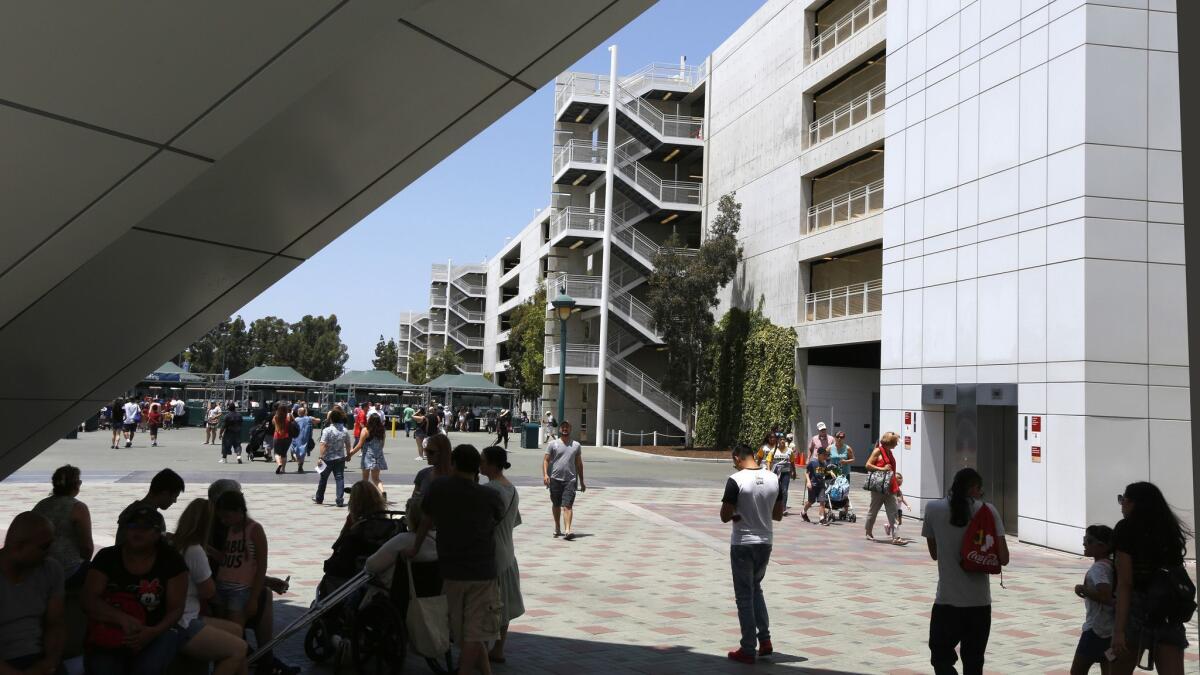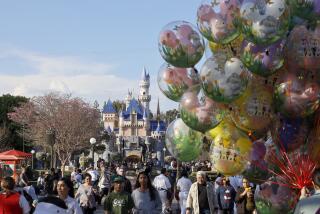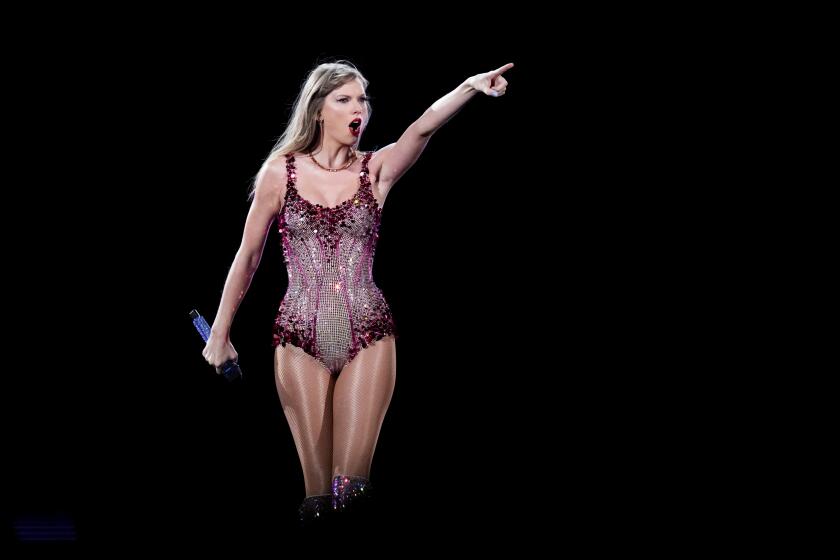Anaheim City Council gets an earful over opinion that Disneyland Resort won’t be subject to ‘living wage’ measure

Business leaders and union organizers clashed at a crowded Anaheim City Council meeting Tuesday night as the city attorney delivered his legal opinion that the Disneyland Resort won’t be subject to a Nov. 6 ballot measure requiring certain hospitality businesses to pay workers a “living wage.”
The ballot initiative, Measure L, has become a divisive issue in Anaheim. Supporters say it will raise wages high enough so that workers can afford basic needs; opponents say it will chase businesses away from the city.
But City Atty. Robert Fabela said the measure, as written, does not apply to the city’s biggest employer.
Measure L, which was put on the ballot by a petition drive, would require large hospitality businesses that accept a city subsidy to pay their workers an hourly wage of at least $15 starting Jan. 1, with salaries rising $1 an hour every Jan. 1 through 2022. Once the wage reaches $18 an hour, annual raises would be tied to the cost of living.
Walt Disney Co.’s Disneyland Resort — which includes Disneyland, California Adventure Park, three hotels and some shops — has about 30,000 employees.
Union workers and business leaders used the meeting to argue about the benefits of the measure and whether it applies to the resort.
Todd Ament, president of the Anaheim Chamber of Commerce, told the council that the measure would give raises to only about 150 hotel workers while chasing off millions of dollars in future hotel projects that would otherwise employ thousands of workers.
“It costs more jobs than it helps,” he said to the applause of several dozen construction workers in the council chambers.
A report by Fabela said the measure would apply to four hotel projects: two that are under construction and two that are in the planning stage. The four projects have been approved under a city program under which some of their hotel taxes are reimbursed for opening luxury hotels near the resort.
There would have been no debate that Measure L applies to the Disneyland Resort except that the city — at Disney’s request — voted in August to end two tax incentive programs. Under a 2016 deal, the resort would have been reimbursed $267 million in hotel taxes if the media giant had agreed to build a luxury hotel at the resort; under a second deal, the city agreed not to adopt any entertainment taxes for 30 years in exchange for the resort’s promise to invest $1 billion in the site.
Disney also put on hold plans to build a luxury hotel at the resort, saying the company needs to reevaluate the economics of the project if the living wage measure wins.
But union leaders say Measure L would still apply to the Disneyland Resort because the city reached an agreement in 1996 to issue 40-year bonds to build a six-story, $108-million parking garage, used primarily by the resort.
“The city attorney’s not the authority on Measure L,” Austin Lynch, organizing director for the hotel workers’ union, Unite Here in Orange County, said before the meeting.
The bonds are being paid off with taxes collected mostly from Disney but also from bed taxes from hotels throughout the city. Meanwhile, Disney collects the parking revenue from the garage — more than $35 million a year. Once the bonds are paid off, the city has agreed to transfer ownership of the garage to the resort.
Fabela, in his opinion, wrote that “although there are many moving parts to the bond transaction, it does not appear to incorporate a direct city subsidy; that is, an agreement in which Disney is entitled to a ‘rebate of transient occupancy tax, sales tax, entertainment tax, property tax or other taxes, presently or in the future, matured or unmatured.’ ”
To read more about the travel and tourism industries, follow @hugomartin on Twitter.







